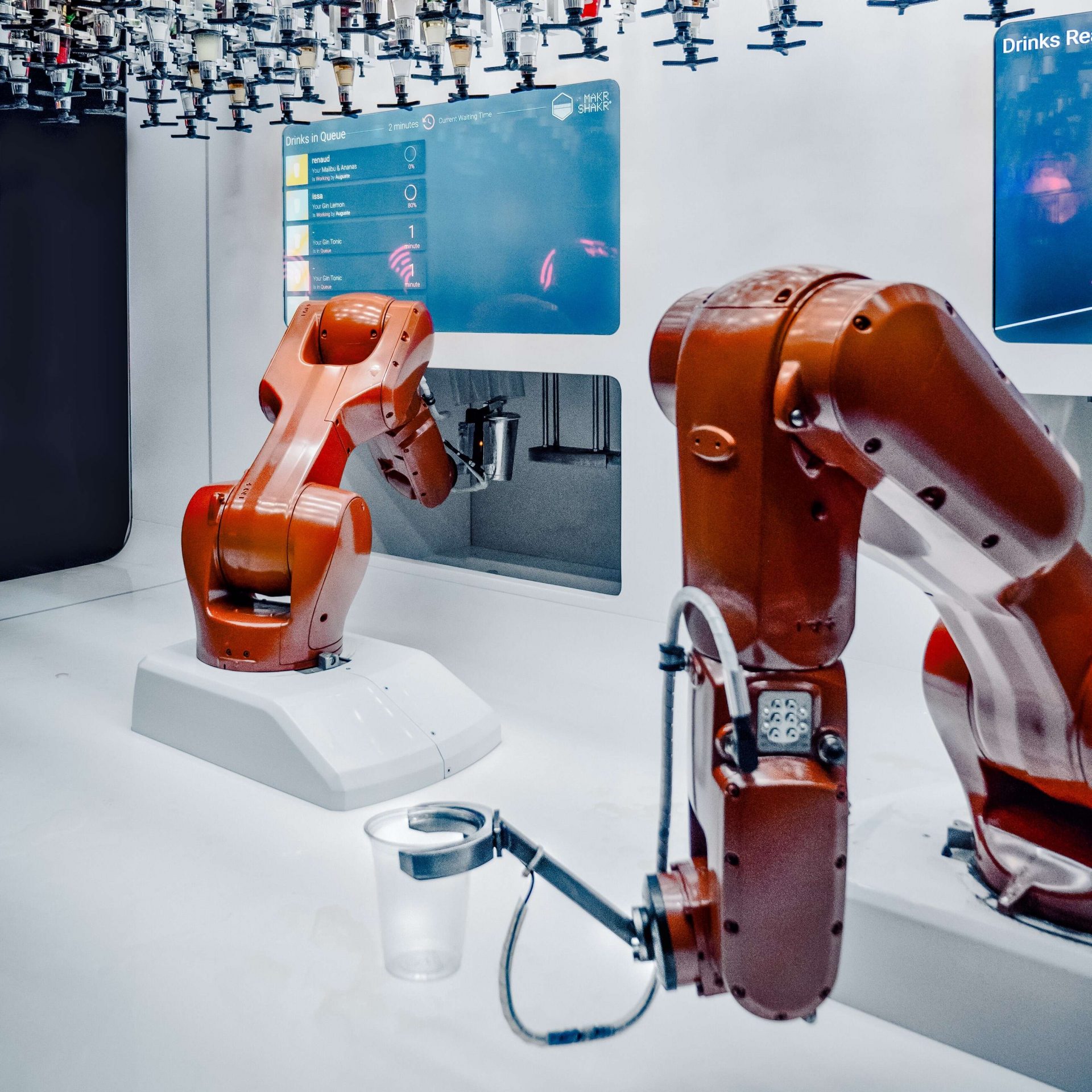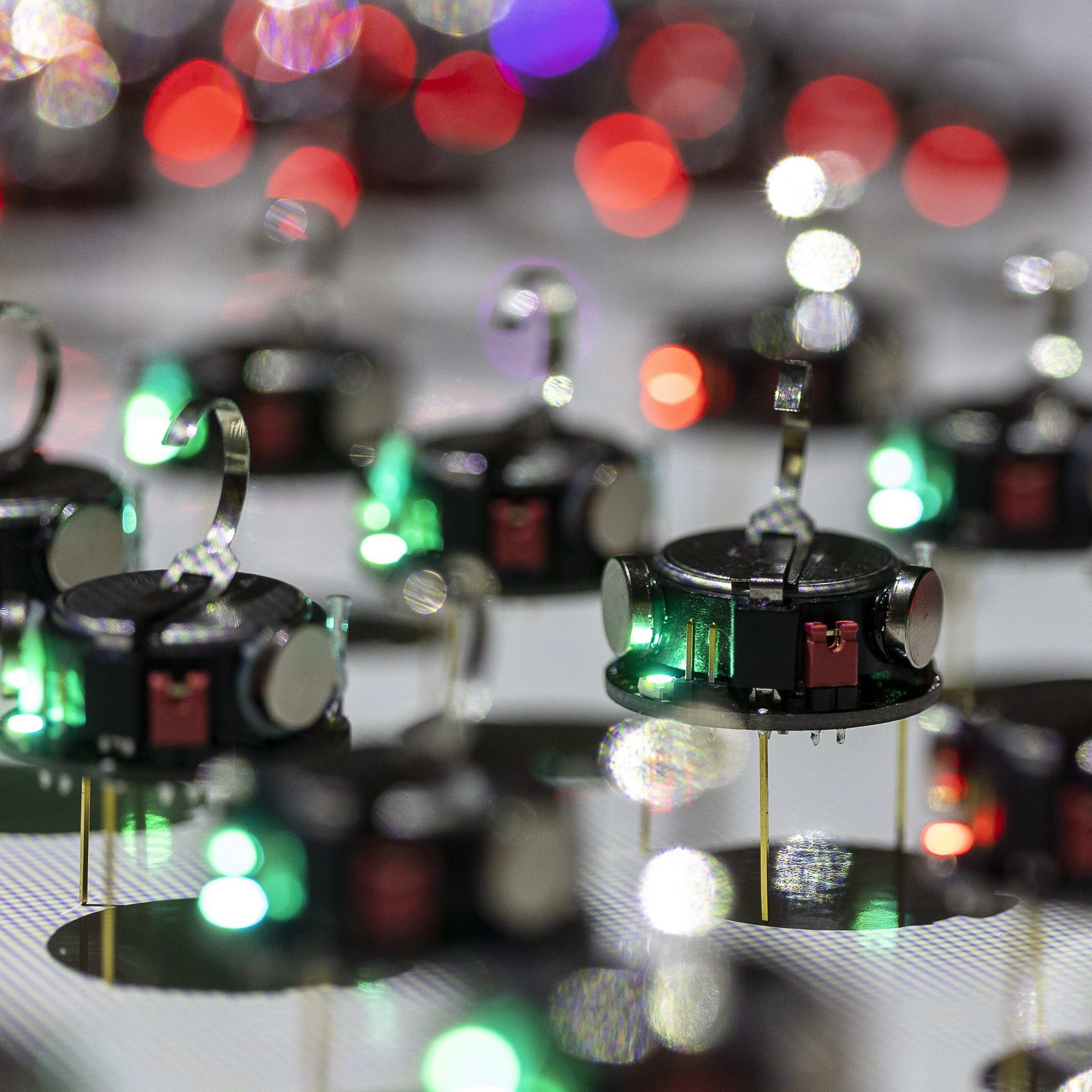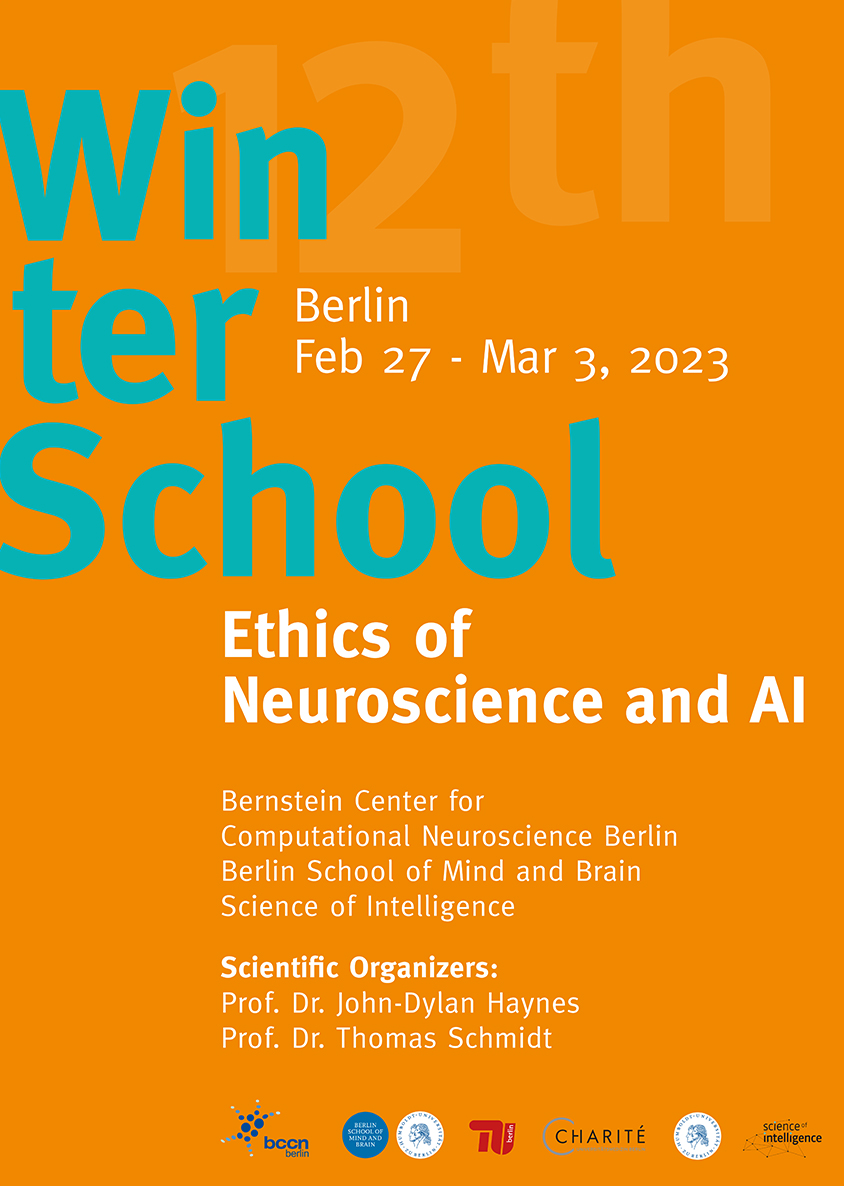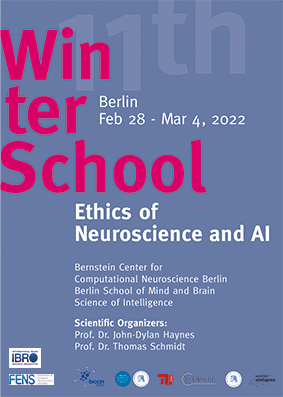
Scott Robins (Bonn University), “What Machines Shouldn’t Do”
Abstract: From writing essays to evaluating potential hires, machines are doing a lot these days. In all spheres of life, it seems that machines are being delegated more and more

Abstract: From writing essays to evaluating potential hires, machines are doing a lot these days. In all spheres of life, it seems that machines are being delegated more and more

Lars Lewejohann, Freie Universität Berlin, German Federal Institute for Risk Assessment (BfR), German Centre for the Protection of Laboratory Animals (Bf3R) Mice, like all other living creatures, have adapted to

Abstract: I investigate how large groups of simple robots can reach a consensus with decentralized minimalistic algorithms. Simple robots can be useful in nanorobotics and in scenarios with low-cost requirements.

Abstract: Biological intelligent systems manifest their intelligence in physical interactions with other agents and with their environment. Such interactions require embodiment. Intelligence, both artificial and biological, also requires some kind

Abstract: This talk will be targeting junior postdocs and phd at their final stages. It will be a short and brief introduction to the major options for grants (those aiming

Abstract: The capabilities of AI systems are improving rapidly, and these systems are being deployed in increasingly complex and high-stakes contexts, from self-driving cars to the detection of medical conditions.

The 12th Winter School "Ethics of Neuroscience and AI" is taking place on Feb 27 - March 3, 2023. It is organized by the BCCN Berlin/ICCN, the Berlin School of

The 11th Winter School "Ethics of Neuroscience and AI" is taking place on Feb 28 - March 4, 2022. It is organized by the BCCN Berlin/ICCN, the Berlin School of

Abstract: The classic view of nature is one of a deathly struggle for existence. Yet, throughout nature, organisms cooperate with each other. Mutualisms – mutually beneficial interactions between species -

Abstract: In this talk, Dr. Jung will focus on the three key principles of good time management: defining priorities, managing expectations and developing routines that work. Following the lecture, the

Abstract: The recent success in Computer Vision has been mostly attributed to improved results using deep learning models trained on large labeled datasets. Many of these datasets have been labeled

Abstract: Programming robots to manipulate articulated objects such as drawers, doors, or locks is a challenging task. One of the major reasons for this difficulty is that robots must physically